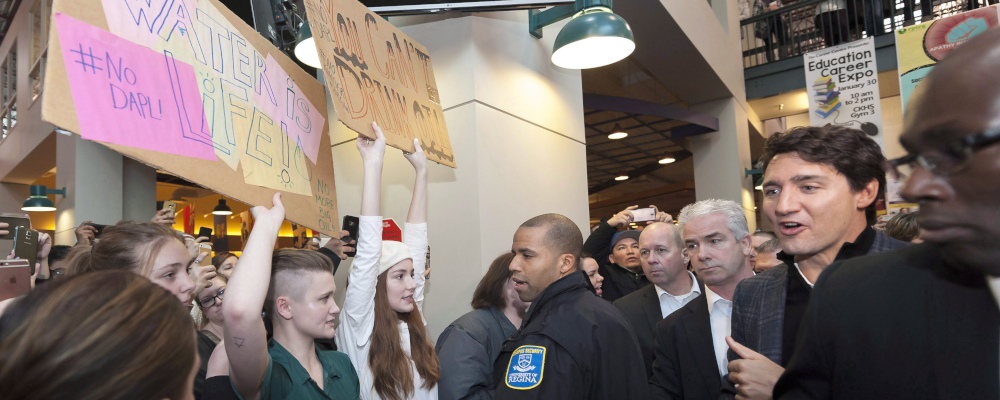Canadian governments invest a lot of money in higher education.
In 2015, they invested 1.2 percent of GDP, or $30 billion. In that same year, there were over 33,000 tenured or tenure-track professors in Canada who earned on average $140,000, placing them in the 96th percentile of income.
These are just some of many statistics that demonstrate the respect that Canadian governments place in higher education and it is clearly important that they do so. Where else can society turn to expect an impartial understanding of the world around us, policy concerns and policy interventions? Where else can society turn to train future entrepreneurs, employees, thinkers, bureaucrats and politicians on which our future depends?
Equally important is the respect with which the public at large holds higher education, however, since it is with them that support for higher education ultimately rests.
As it turns out, in Canada higher education is the most respected institution included in a recent survey by Public Square and Maru/Blue and provided to The Hub. The others were government, judiciary, media, police and religious institutions and the Public Square study surveyed 1,500 Canadians, Americans and Britons on their respect for institutions, including higher education.
While a good sign, it is not exactly a ringing endorsement of higher education since only one-third of respondents reported that they had a “great deal” of respect for it. This figure is the same as for U.S. respondents. Similarly, higher education was the institution with the lowest proportion of respondents indicating “little or no” respect for it (14 percent).
At the same time, there is concern that academia, and academics in particular, are skewed to the left politically. While various studies have looked at this issue in the past, a comprehensive study including Canada, the US and the UK was recently released. The study documented a general pattern supporting this concern. It found for example that only 7 percent of Canadian professors voted on the right (Conservative or People’s Party of Canada) in the most recent federal election in 2019.
The Queen’s speech last week even laid out the U.K. government’s plan to protect freedom of speech on campus after a series of “de-platforming” incidents in the country. Among other proposals, the plan will allow people to seek compensation for losses due to infringement of speech in higher education.
It could be argued that the political affiliations of professors is not an important concern and that professors can remain impartial, independent of their political views. It can also be argued that the political views of professors will not necessarily influence the politics of their students who go on to work in government, where higher degrees are now almost universally required. While this is possible, it’s also possible that political affiliation of professors matters to the public, which is what the Public Square data suggest.
In particular, while 43 percent of people voting Liberal have “a great deal of respect” (along with 40 percent of those voting Liberal, NDP or Green) for higher education, only 26 percent of those voting Conservative do. Moreover, almost 20 percent of Conservatives have “little or no respect” for higher education compared to only 9 percent for Liberal, NDP and Green voters.
Similar patterns have been observed in a series of Gallup polls in the U.S. They show that in 2018, 48 percent of Americans had a “great deal” or “quite a lot” of confidence in higher education. Like in Canada though, confidence is highly partisan with only 39 percent of Republicans showing such confidence, compared to 62 percent of Democrats.
Perhaps more discouraging is that these numbers are decreasing rapidly, particularly for Republicans. Between 2015 and 2018, Republican confidence in higher education had dropped by a third, three times faster than for Democrats.
To be sure, the reasons for the difference in confidence in higher education by political affiliation are not explained in these studies. At the same time, it’s not a leap of faith to imagine that these findings could be partly explained by the political leanings of the professoriate.
If this is the case, and if the same temporal pattern exists in Canada, it could have implications for how future governments on the right see, value and fund higher education. Calls for the re-evaluation of government funding for universities are already mainstream in the U.S. and similar calls in Canada may not be far behind.
Canadian universities and governmental funding agencies would be wise to consider this in their governance and policies, perhaps even those policies relating to diversity.
Recommended for You

Laura David: Red pill, blue pill: Google has made its opening salvo in the AI-news war. What’s Canadian media’s next move?

The Notebook by Theo Argitis: Mark Carney’s first major tests

The Weekly Wrap: Trudeau left Canada in terrible fiscal shape—and now Carney’s on clean-up duty

Ben Woodfinden: Lament for an ‘elbows up’ nation



